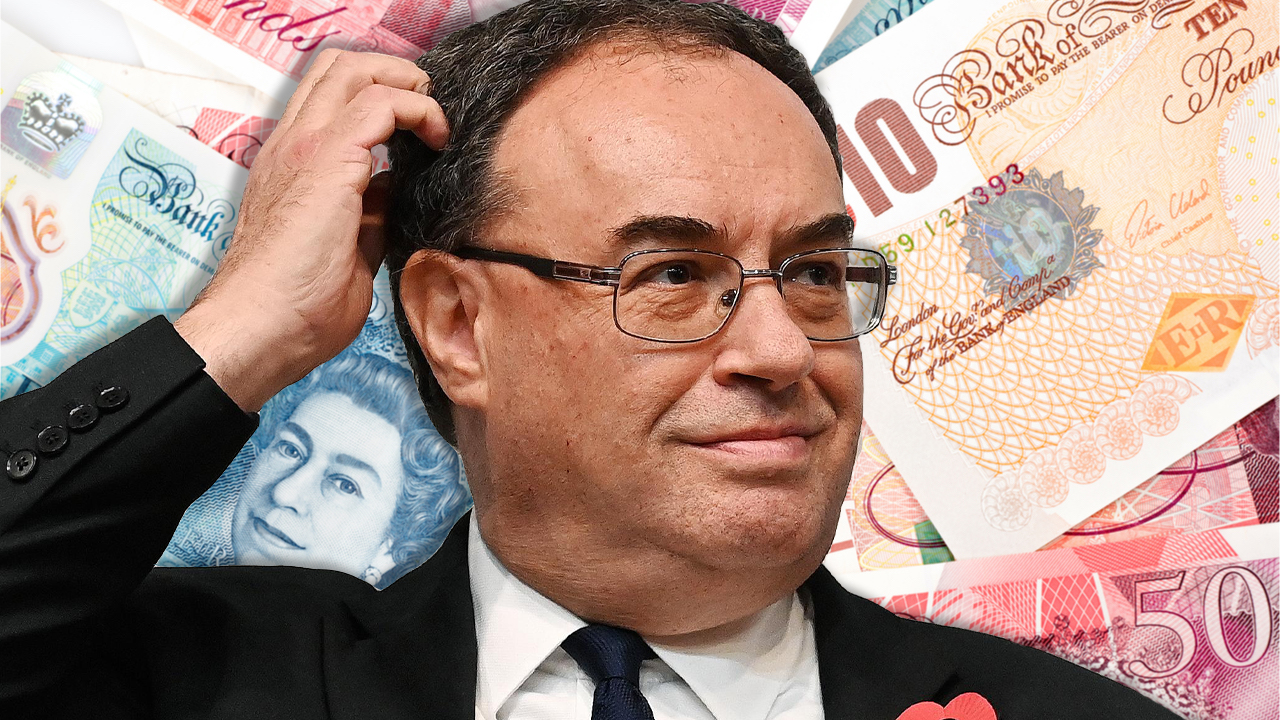The Bank of England (BOE) raised the country’s benchmark bank rate from 0.25% to 0.5% this week in order to curb rampant inflation. “We face a trade-off between strong inflation and weakening growth,” the British central bank’s governor Andrew Bailey told the press. Furthermore, when asked by a BBC reporter if BOE members were urging British citizens not to ask for pay raises, Bailey replied: “Broadly, yes.”
BOE Raises Rates for the Second Time Since the Start of the Covid-19 Pandemic, British Central Bank Governor Says ‘We Need to See Restraint in Pay Bargaining’
The Bank of England has raised the benchmark interest rate again after raising the rate back in December. BOE was the first major central bank to raise rates after the pandemic and on Thursday, the rate was bumped again from 0.25% to 0.5%. The British central bank’s move follows hawkish statements stemming from the U.S. Federal Reserve when it said it would raise rates “soon.” Fed chairman Jerome Powell signaled that the rates would likely be increased in mid-March 2022.
Following the BOE’s Monetary Policy Committee meeting, the bank disclosed that four out of the nine committee members wanted to bump the rate to 0.75%. However, the majority of committee members, including governor Andrew Bailey, voted to increase the benchmark rate to 0.5% instead. After the increase, the British pound tapped a two-year high against the euro, and British government bonds were sold off during the afternoon trading sessions on Thursday.
Meanwhile, the central bank of England envisions inflation peaking in April to 7.25% even with the recent bank rate increase. Moreover, Bailey told the press that the public should not expect a marathon of benchmark rate increases. “We face a trade-off between strong inflation and weakening growth,” Bailey stressed to reporters. While explaining that the rate hikes would not continue for an extended period of time, Bailey was questioned about the British working class by a BBC reporter.
“We are looking to see quite clear restraint in the bargaining process because otherwise, it will get out of control,” Bailey explained in an interview on BBC Radio 4. “I’m not saying nobody gets a pay rise, don’t get me wrong, but I think, what I’m saying is, we do need to see restraint in pay bargaining.” The BBC reporter then asked the BOE governor if the British working class should stop demanding higher wages and Baily responded: “broadly, yes.” Bailey’s remarks continued when he said:
“That is painful. I don’t want to in any sense sugar that message. It is painful. But we need to see that in order to get through this problem more quickly.”
Former BOE Monetary Policy Committee Member: ‘Public Sector Workers Have Had Their Pay Frozen for a Decade’
Dartmouth College professor Danny Blanchflower, a former member of the BOE’s Monetary Policy Committee (MPC) from 2006 to 2009, said on Twitter that governor Andrew Bailey was clueless. ”Just as real wages go strongly negative Clueless Bailey tells workers it is their fault [and] need to get lower pay even though he won’t,” Blanchflower tweeted. “Public sector workers have had their pay frozen for a decade of Tory rule what kind of a world is this – time for workers to tell him to get lost.”
Let me show in one chart why the MPC decision is a disaster – here is the employment rate in Nov 2021
Full-employment, tight labor market my hat pic.twitter.com/8cArVXrJYy— Professor Danny Blanchflower economist & fisherman (@D_Blanchflower) February 3, 2022
Markets.com analyst Neil Wilson also criticized Bailey’s statements about not asking for wage increases. “The governor of the Bank of England, Andrew Bailey, says we can do our bit to help to battle rising inflation by not asking for wage increases,” Wilson wrote. “Coming from someone who’s been sleeping at the controls for the last 18 months, that is not exactly helpful. How about doing your job? By which I mean getting a grip on inflation before it sets in – which would have been to gently tighten last summer. Too bad that moment was lost.”
What do you think about the BOE raising the benchmark interest rate? What do you think about Andrew Bailey recommending the British working class should stop demanding higher wages? Let us know what you think about this subject in the comments section below.




















